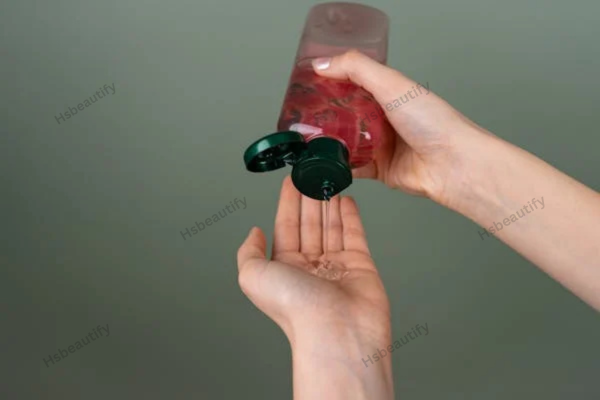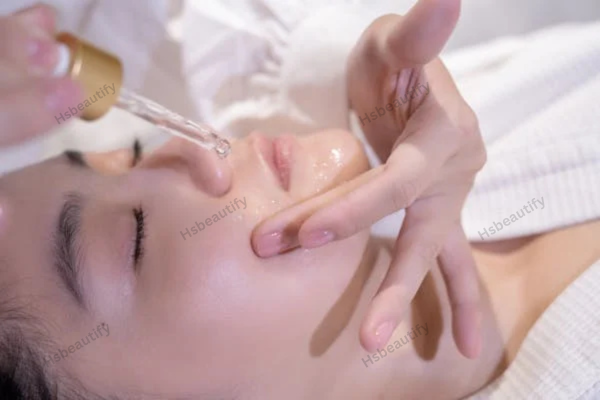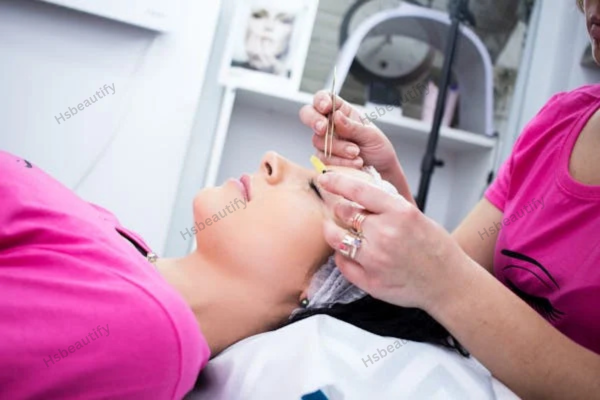Can I Use Cleansing Oil When I Have Acne?
Acne takes the lead as one of the common skin disorders in people of all ages, including teenagers and adults. At any given time, the shelves are flooded with products promising to help with acne, making it quite hard to know which one will be best for you. One question that often arises is: Is it possible to remove cleansing oil when I have pimples? Well, you might not find the answer to that question as easily as you think. Let me explain more about Cleansing oil for acne skin, its benefits and its possible demerits.
Understanding Cleansing Oils
Cleansing oils are a category of skin cleansers in which the formulations are based on lipophilic lubes that are used for emulsifying make-up, sunscreen, dirt and excess sebum. In contrast to the foaming cleansers peculiar to the Western market and containing aggressive surfactants, cleansing oils are designed to cleanse the skin without deleting its natural protective layer.
The idea behind washing and cleanse oils is that “oil dissolves oil.” This implies that ‘oil’, ‘oily-sulphates’ or oil based cleansers are effective in emulsifying the oils that block the pores to make acne – a fact that the cleansers used by the female respondents were able to prove. Today’s makeup removers are beaded with emulsifiers which enables the removal of the oil with water without staining the face with grease.
Benefits of Using Cleansing Oil for Acne-Prone Skin
1. Gentle and Hydrating
Most acne remedies are known to cause a dry skin effect hence causing further inflammation and redness on skin. The cleansing oils are mild, and they are effective in the respect that one’s skin will be left comfortable, without any dryness, which makes the cleansing oils good for sensitive skin.
2. Effective Makeup and Sunscreen Removal
It is important to wash off makeup and sunscreen correctly in order to ensure healthy skin. Cleansing oils are particularly effective when it comes to removing these products from your pores, and therefore maintaining their unobstructed condition.
3. Supports the Skin Barrier
A weakened skin barrier is considered to deteriorate acne. Cleansing oils prevent and heal the skin barrier by not exposing skin to the aggressive removing action of typical cleansers.
4. Reduces Overproduction of Sebum
It is therefore important not strip the skin of the natural oils as it may lead to an production of more sebum. Cleansing oils are less likely to disrupt that balance and might even minimize the potential of a new pimple appearing on your face.
Potential Concerns with Cleansing Oils

In fact, cleansing oils may not be all that friendly to everyone out there, as much as they turn out to be helpful in a number of ways. Here are some potential drawbacks to consider:
Risk of Comedogenic Ingredients
Some of the oils are indeed comedogenic, that is, the oils which block the pores of the skin and cause acne. Consuming a non comedogenic cleansing oil is necessary when engaging in this practice.
Residue Concerns
Failure to wash off a cleansing oil appropriately may cause the remains on the skin to cause irritation or blocked pores. It is always important that your cleansing oil can be easily washed off after a few rinses.
Skin Sensitivities
Some plant-based oils in cleansing oil formulas or added fragrances can cause redness or rashes to persons with sensitive skin. Always read the label and do a skin test if necessary.
How to Choose the Right Cleansing Oil for Acne-Prone Skin
However every cleansing oil is not the same as described above. To maximize benefits and minimize risks, consider the following tips:
Look for Non-Comedogenic Oils
Widely, non-comedogenic oils refer to the oils that cannot fill up the pores of the skin. Examples include:
- Jojoba oil: Imitates sebum(the skin oil/ spread on the skin) and assists in the regulation of the skin’s oil.
- Grapeseed oil: It has weightless and antioxidant characteristics.
- Hemp seed oil: Contains omega-3 and omega-6 fatty acid and is well known for its ultimate health benefits such as having anti-inflammatory effect.
Avoid Harsh Additives
That is why it is advisable to go for those particular perfumes that do not contain added fragrances or essential oils or alcohol since these are known to worsen acne skin conditions.
3. Choose Products with Emulsifiers
Make sure that the cleansing oil to be developed contains emulsifiers that can be washed off under running water. This eliminates a layer that could if not removed accumulate and block the pores of the skin.
Read Reviews and Test
Read reviews from people with similar skin problems, when in doubt, buy the drugstore brand while testing products out, go for the trial size.
How to Incorporate Cleansing Oil into Your Routine

If you decide to use cleansing oil for your acne-prone skin, follow these steps for optimal results:
Use as the First Step in a Double Cleansing Routine
Double cleansing means use of a cleanser which belongs to a category of an oil type cleaner and then follow-up with application of a water type of a cleanser. It also helps to clean the skin well without over-washing it by using the fingers or washcloth all the time.
Apply to Dry Skin
Pour a little amount of the cleansing oil into your palms and gently rub your hands on dry skin surface. Use areas with excess makeup, sun tan or oil so that it can be easily washed away by water.
Emulsify with Water
splash a few drops of water on your hands and go on rubbing. The oil should become milky when it gets emulsified.
Rinse Thoroughly
Wash off the oil with warm water – do not use hot water since it tends to darken the skin. Take a hand and gently rub it over your face to remove the soapy water; then take a clean piece of velvet and abrade your face dry.
5. Follow with a Water-Based Cleanser
This step rinses the face and clears off any remaining deposits and soothes your skin while being sure that all the deposits are washed off.
Can I use cleansing oil without makeup
Understanding the Purpose of Cleansing Oil
Cleansing oil provides benefits to the skin which go past its ability to remove makeup. It functions by breaking down oil-based pollutants including excess skin oil while providing a solution for both those who wear and don’t wear makeup products. Cleansing oil provides effective skin cleansing with deep pore cleansing and prevents traditional foam cleansers’ dehydration effect.
Benefits of Using Cleansing Oil Without Makeup
Even if you don’t wear makeup, cleansing oil can still be a valuable addition to your skincare routine:
- Removes Sunscreen and Skincare Residue: The oil-base structure of most sunscreens makes cleansing oils highly effective for removing sunscreen residues from your face.
- Balances Oil Production: People generally mistake oil cleansers for causing excessive sebum production but they actually help balance oil levels making them suitable for dry and oily skin types.
- Deeply Cleanses Pores: By dissolving impurities the solution avoids pore clogging and helps prevent acne.
- Maintains Skin Hydration: By contrast to abrasive cleaners cleansing oil both eliminates impurities while preserving the skin’s protective moisture barrier.
How to Use Cleansing Oil Without Makeup
To get the most out of cleansing oil, follow these steps even on no-makeup days:
- Apply to Dry Skin: Dip a small amount of cleansing oil onto your dry skin to use circular motions which let the impurities dissolve.
- Emulsify with Water: You should add some water to your cleansing oil to change it into a whitish solution which helps simplify the removal process.
- Rinse and Follow Up: After water washing perform dual cleansing when needed by using mild cleansers or proceed directly to your skincare routine.
Cleansing oil functions for skincare even when someone does not utilize any makeup on their face. This facial oil removes sunscreen while piloting away both excess oils and impurities from the skin while maintaining its hydrated state. Add it to your morning or evening regimen so you can achieve brighter healthier skin.
Do you use cleansing oil before cleanser
The Role of Cleansing Oil in Skincare
Double cleansing originated in Korean and Japanese skincare where cleansing oil serves as the launchpad during the initial process. puta-purpose oils dissolve oil-based dirt including sunscreen and makeup deposited on the skin alongside sebum and environmental pollutants. Because oil bonds with opposing oil-based substances cleansing oils efficiently clean heavy residues through gentle skin hydration.
Skin Types and Conditions That Should Avoid Cleansing Oil
Using cleansing oil before a regular cleanser is essential for achieving a deep and thorough cleanse:
- Removes Oil-Based Impurities: Until it reaches the pores Cleansing oil efficiently tackles makeup and sunscreen as well as sebum that standard water-based cleansers cannot properly eliminate.
- Prevents Stripping the Skin: Moisturizing cleansing oil enhances skin care by cleansing while delivering nourishment thus avoiding irritation and skin dryness.
- Enhances Effectiveness of the Second Cleanse: The refined condition of your complexion requires a second cleansing product such as gel foam or cream for removing residual elements together with sweat and environmental debris.
- Ideal for All Skin Types: Cleansing oils work for all skin types including oily and acne-prone skin because using them with a gentle, non-damaging second cleanser maintains skin health through normalizing sebum levels.
How to Use Cleansing Oil with a Second Cleanser
To maximize the benefits of double cleansing, follow these steps:
- Apply Cleansing Oil on Dry Skin: Use circular motions to work the oil into your facial skin which helps both remove makeup and break down environmental pollutants.
- Emulsify with Water: Pour a few drops of water into the cleansing oil until the mixture becomes milky then fully rinse it off.
- Follow with a Water-Based Cleanser: The gentle application of a cleaning gel, foam or cream will help remove all residue while performing a deep skincare cleansing process.
- Pat Dry and Continue with Skincare: Using toner combined with serum along with moisturizer creates a hydration barrier on the skin.
The double cleansing step requires cleansing oil as the first product so it should precede regular cleansers. Cleansing oil prepares the skin through effective dual action purification which allows both types of impurities to clear out so the skin remains clean while staying balanced.
Who cannot use cleansing oil?
Skin Types and Conditions That Should Avoid Cleansing Oil
While cleansing oil is generally safe, the following individuals may need to avoid it or use it with caution:
- People with Severe Acne or Oily Skin: The use of cleansing oils proves harmful for people with cystic acne because the presence of persistent oil and heavy comedogenic material in the oils causes pores to clog leading to breakouts.
- Individuals with Fungal Acne (Malassezia Folliculitis): Oils might nourish yeast causing fungal acne leading to negative effects on the condition. People need to stay away from cleansing oils with added esters and fatty acids because these substances help yeast reproduce.
- Those with Extremely Sensitive or Allergic Skin: Some people experience negative contact reactions to specific cleansing oils combined with scents because these ingredients cause their skin to become red and inflamed or trigger allergic responses.
- People with Eyelash Extensions: The adhesive material which maintains eyelash extensions will dissolve when using oil-based products and lead to premature lash detachment.
- Anyone with a History of Oil-Related Breakouts: Previous oily skin reactions following facial oil usage indicate cleansing oil sensitivity so you should switch to water-based or gel cleansers.
Alternatives to Cleansing Oil for Those Who Cannot Use It
If cleansing oil is not suitable for your skin, consider these gentler alternatives:
- Micellar Water: This non-greasy formula successfully cleans away makeup as well as environmental impurities without creating pore blockage.
- Gel or Foam Cleansers: The cleansing results of gel and foam products deliver deep cleaning support suitable for people with oily texture or acne types.
- Cream Cleansers: People with sensitive skin should use this cleansing option because it provides hydration without creamy oils.
- Double Cleansing with a Non-Oil Cleanser: Kickstart your double cleansing routine by using a water-based cleanser before moving directly into your regular face wash if you prefer oil deep cleansing.
Cleansing oil functions as a good skincare product except for users whose skin shortages from severe acne or fungal conditions or extreme allergic tendencies or individuals wearing eyelash extensions. Predicting your skin type helps you identify cleaning solutions which deliver complete yet secure cleansing practices.
Popular Misconceptions of Cleansing Oils and Acne
Cleansing Oils Make Acne Worse
Fact: Some oil cause blockage to the pores but non comedogenic cleansing oils are designed to effectively help to wash off excess oil and other dirt.
Oily Skin Doesn’t Need More Oil
Fact: In this case, cleansing oils are beneficial because, first, they maintain the skin’s equilibrium and, second, they ensure that the skin does not produce excess sebum because of dryness.
All Oils Are the Same

Fact: But it did demonstrate that the acrylic copolymer and other oils of similar composition are the most effective in providing protection to metals. The type of scrub that is chosen has to be ideal since a wrong one might lead to problems such as blocked pores or skin inflammation.
Conclusion
To answer the last question: can you use cleansing oil if you have acne? The answer is yes—so long as the chosen product and the way it is employed is correct. Cleansing oils are great for skin with acne because they work in a non-irritating manner to clean without displaced aggression against the skin’s barrier. It is, therefore, necessary to consider what goes into it although the application and washing off must be carefully done.
For beginners, one should speak to a dermatologist regarding the most suitable cleansing oil to use on their skin. Thus, strengthening our confidence that with the proper application of optimum cleansing oils you can obtain the skin you desire.